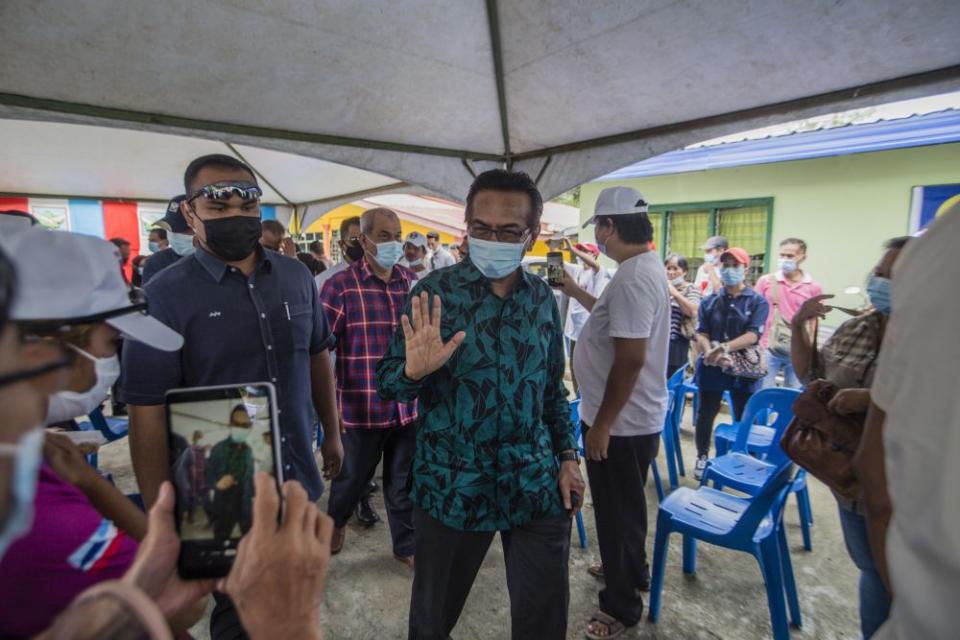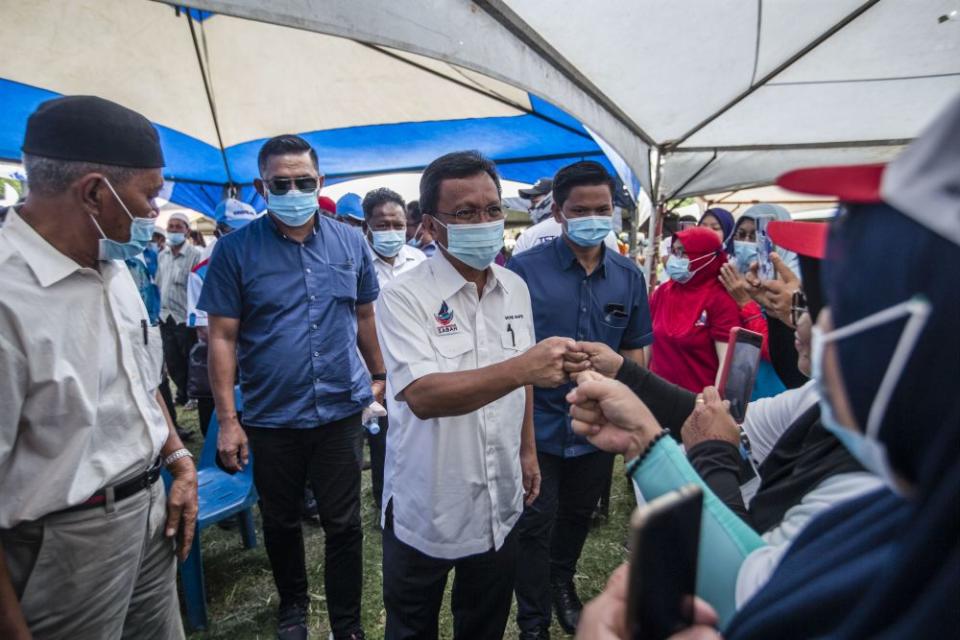With one week left before Sabah votes, tight race brings out mudslinging, infighting and conspiracy theories

KOTA KINABALU, Sept 19 — At halfway point the Sabah election, the campaigning that started with civility a week ago has quickly devolved into attack politics and hidden treachery.
Manifestos and issues have taken a backseat to the drama, mostly between the leaders of Gabungan Rakyat Sabah (GRS), the hastily formed informal Opposition alliance of Perikatan Nasional (PN), Barisan Nasional (BN) and Parti Bersatu Sabah (PBS).
While the allies have publicly agreed to a supposed friendly contest after failing to avoid overlaps in contested seats, their seemingly respectful smiles and handshakes mask barely concealed contempt for one another.
There are at least 17 confirmed clashes among the three GRS components but this could be as many as 20 if independent candidates allegedly supported by Parti Solidariti Tanah Airku (STAR) are considered.
PN has Parti Pribumi Bersatu Malaysia (Bersatu), STAR and Sabah Progressive Party (SAPP); while BN consists of Umno, Parti Bersatu Rakyat Sabah and MCA. PBS, on the other hand, has opted to be a “partner” but stresses it is not directly a member of GRS.
Complicating matters further are another six independent candidates who were dropped by their parties for defecting but still command a decent following, and independent parties such as Datuk Anifah Aman’s Parti Cinta Sabah (PCS) and Tan Sri Chong Kah Kiat’s Liberal Democratic Party (LDP).
While observers all agree the main fight is between the incumbent Warisan Plus coalition and GRS, independents and local parties — even those with one or two seats — have a real potential to be the kingmakers in the likelihood of a close finish between Warisan and GRS.
A serious internal tussle has also emerged between BN and PN, as both have openly stated their aim of winning enough seats to unilaterally name a chief minister of their choosing.

While BN had appeared to hold the numbers advantage in this race, the appearance of former chief minister Tan Sri Musa Aman — dropped unceremoniously by Umno before the election — on the PN campaign trail has tipped the scale towards the latter.
Musa, who is also the former Sabah BN chief, made a surprise appearance at a federal government event earlier this week, stumping for Bersatu and, later on, PBS’ Kiulu candidate Datuk Joniston Bangkuai.
His emergence has given substance to murmurs that he was not taking the decision to deny him a seat to contest lying down and was plotting reprisal behind the scenes.
Musa’s decision to appear with the Bersatu and PBS camps instead of the Umno/BN campaign has led to speculation that he was throwing his still considerable influence behind the former two in a quid pro quo.
Political analyst Ei Oh Sun hypothesised that Musa’s cooperation with PN could open up avenues for him that had appeared closed after he was dropped from the Umno line-up.
The first was for him to be the chief minister by proxy — a plausibility given his evident support base from the July 29 attempted takeover — before being appointed as a nominated assemblyman, allowing him back into the state legislature without needing to contest.
The other option was more straightforward and has been done before: Get an assemblyman in a safe seat to resign and force a by-election that he could then win.
Despite his mysteriousness at the moment, Musa is no doubt a main player in the polls, and a threat to both caretaker chief minister Datuk Seri Shafie Apdal and Sabah BN chairman Datuk Seri Bung Moktar Radin, who is leading the BN charge for the first time.
Superficially, Musa’s involvement appeared to be most damaging for GRS but political watchers said he could also sway votes away from Warisan Plus as there were pockets in the state who still backed him.
It is also unclear if Shafie will be able to capitalise on the Musa factor enough to put his coalition ahead.
The Warisan president and his coalition have run a slick election campaign so far but this has not completely erased unhappiness in the state with undelivered pledges, the flagging economy, and Sabah’s perennial problem with undocumented migrants.
Running on a platform of state solidarity, Shafie has been at the forefront of the Warisan Plus campaign, eschewing the support of leaders of allied peninsula-based parties in an attempt to portray his coalition as a primarily local outfit.
With the political drama again catching the news cycle, it would appear that the intrigues of political parties have again eclipsed issues that have been centrestage for numerous elections but seem no closer to resolution: the development of the economy and basic infrastructure, state rights, and undocumented migrants.
The Sabah election is on September 26 and will feature 447 candidates, including 56 Independents, vying for 73 seats.

Related Articles Shafie Apdal says called undocumented migrant because going against BN Sabah election a chance for voters to change government, says Musa Aman Bersatu’s Hajiji denies being puppet of Musa Aman



